
OA removes barriers to knowledge sharing by advocating for the adoption of OA policies and mandates - Dr Roshan Karn
|
Dr Roshan Karn is a medical doctor at Tribhuwan University Teaching Hospital in Kathmandu, Nepal. He is also 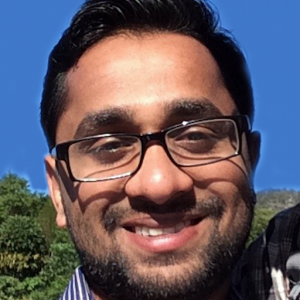
Dr Karn has received a few awards for the significant contribution to the progress of open access in the developing world such as Right to Research Coalition (R2RC) Emerging Leader at OpenCon 2015. Spaces are limited, to register click here. |
“My passion and goal is to make education accessible, engaging and relevant for youth in the developing world” – Megan Beckett
|
Megan Beckett has always been passionate about science education and exploring the realm of interactive 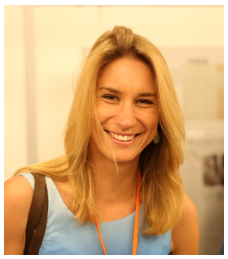
Megan is driven to make education as accessible and engaging as possible, committed to being an active player in the education revolution that our country needs and more broadly, she is active within the global open movement, specifically around open education and advocating for the use of OER. Spaces are limited, to register click here. |
“Change the face of the country by changing higher education”- Fasiha Hassan
|
Fasiha Hassan, former University of Witwatersrand (Wits) SRC Secretary General, has a Bachelor’s of Laws 
Spaces are limited, to register click here. |
“If you believe in openness, stand up for it. Access to information is a human right, but it is often treated as a privilege” – Erin Mckiernan
|
Erin McKiernan is a professor at the National Autonomous University of Mexico and is a researcher in 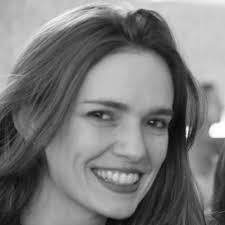
McKiernan experienced how research libraries in South America had to choose between adding high cost key journal titles to their collection or be able to pay the salary of a researcher. To show this deep commitment to making all her research open, McKiernan shared her pledge publicly at the SPARC 2014 Open Access Meeting. By walking the talk, McKiernan only publishers her work open access, is only on open access journal boards (not hybrid journals) and shares her pre-prints. She also makes her data and code available, as well as her laboratory notebooks when possible. McKiernan frequently blogs, tweets and is also the founder of the Why Open Research project, an educational website for researchers to learn about sharing their work. McKiernan is convinced that other early career researchers can be game changers as they foster in an era of open science. Spaces are limited, to register click here. |
Open Access Sudan – Dr Osman Aldirdiri
|
Osman Aldirdiri is a medical student at the University of Khartoum and the founder of Open Sudan Project, a 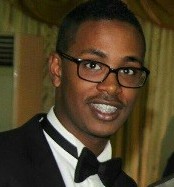
Osman also serves as membership development assistant for the Right to Research Coalition and as project coordinator for FORCE11. Osman believes that the implementation of data sharing concepts on a wide range would enhance the research output especially in the medical field. Leading to an acceleration in the pace of medical progress and an improvement in health care quality.
Spaces are limited, to register click here. |
“Open access wins all of the arguments all of the time” - Dr Ahmed Ogunlaja
|
Dr Ahmed Ogunlaja is a medical doctor, public health enthusiast and an open access advocate from Nigeria. He 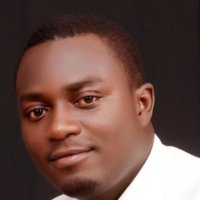
Currently Dr Ahmed Ogunlaja is participating in the Mandela Washington Fellowship, the flagship programme of President Obama's Young African Leaders Initiative (âª#YALI2016). Upon completion of the Mandela Washington Fellowship, Ahmed plans to continue the advocacy work while pursuing his interest in public health advocacy in the area of non-communicable diseases, with a special emphasis on cardiovascular health and drug policy reform. Spaces are limited, to register click here. |
Legislation and Copyright specialists
|
“Copyright, as an economic control mechanism, limits, or hinders, content availability and accessibility” - Dick Kawooya 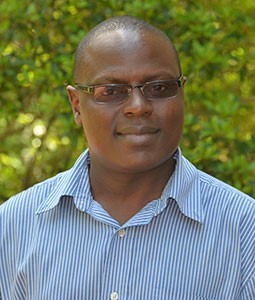
Dr Dick Kawooya is an Assistant Professor at the University of South Carolina School of Library and Information Science (SLIS). Most recent, he was part of the African Innovation Research and Training Project and network, Open AIR under which he studied the role of Intellectual Property (IP) in the exchange and interactions between informal and formal sectors in Africa’s emerging automotive industry. Dick Kawooya is a former Lead Researcher of the African Copyright and Access to Knowledge (ACA2K) Project. Kawooya, as an intellectual property specialist, argues that, ‘copyright, as an economic control mechanism, limits, or hinders, content availability and accessibility, which then affects the internet’s role in democratizing access to information’. His research interests fit the broad theme of access and flow of information. He has particular interest in the ethical and legal barriers to information access and flows often with the library institution as the backdrop. “I am very much an advocate for OA as I believe it is essential for creating an access-enabling environment” - Tobias Schonwetter 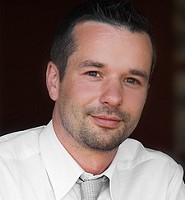
Dr Tobias Schonwetter is the Director of the Intellectual Property Unit at the University of Cape Town's law faculty and the Regional Coordinator for Africa for Creative Commons. He currently is a Principal Investigator for various intellectual property-related research and capacity building projects, including Open AIR (www.openair.org.za) and ASK Justice (www.askjustice.org). Previously, Tobias was a Senior Manager at Price Waterhouse Cooper South Africa. Since 2009 Tobias is also the legal lead of Creative Commons South Africa. Tobias studied and practiced law in Germany and holds Ph.D. and LL.M. degrees from the University of Cape Town. “The most impactful knowledge is open and shared knowledge” – Caroline Ncube 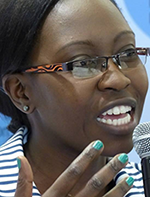
Prof. Caroline Ncube is the Head of the Commercial Law department at the University of Cape Town and a National Research Foundation (South Africa) rated researcher. Caroline’s notable projects include the African Copyright and Access to Knowledge Project (2007-2011), which investigated the relationship between copyright and access to learning materials in African countries. She is currently involved in the Open African Innovation Research and Training (Open A.I.R.) project. We have extended our early bird registration of R4, 000.00 till the duration of the symposium, to register click here. |
SPARC
|
SPARC (the Scholarly Publishing and Academic Resources Coalition) works to enable the open sharing of research outputs and educational materials in order to democratise access to knowledge, accelerate discovery and increase the return on our investment in research and education. As a catalyst for action, SPARC focuses on collaborating with other stakeholders—including authors, publishers, libraries, students, funders, policymakers and the public—to build on the opportunities created by the Internet, promoting changes to both infrastructure and the culture needed to make open access the default for research and education. Heather Joseph – “’open’ can provide a solution to a problem, and a lever to create new opportunities” 
Heather Joseph serves as SPARC’s Executive Director, leading the strategic and operational activities of the organisation. She has focused SPARC’s efforts on supporting new models for the open sharing of digital articles, data and educational resources. Under her stewardship, SPARC has become widely recognised as the leading international force for effective open access policies and practices. Nick Shockey - “Open access will improve how we teach, learn, and solve problems in ways that are impossible within a closed system” 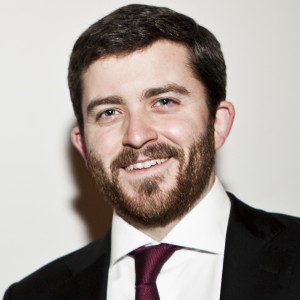
Nick Shockey is the Director of Programs & Engagement for SPARC and founding Director of the Right to Research Coalition, an international alliance of student organisations that promote Open Access to the results of research through advocacy and education. Lorraine Haricombe – “how will… research... change the world if it’s closed behind paywalls?” 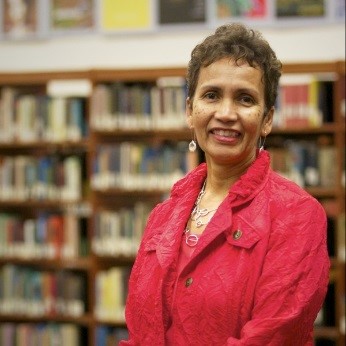
Born and raised in South Africa, Dr. Lorraine J. Haricombe joined the University of Texas Libraries in 2015 as Vice Provost and Director after serving as Dean of Libraries at the University of Kansas from 2006-2015. She serves as the current chair of the SPARC Steering Committee Nicole Allen – “students cannot learn from books they can’t afford” Nicole Allen is the Director of Open Education for SPARC. In this role she leads SPARC’s work on the area of 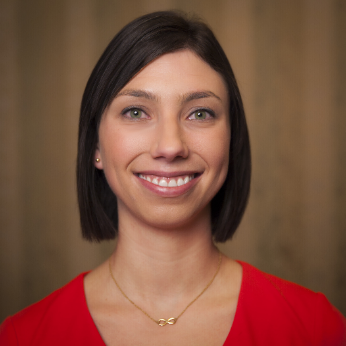
We have extended our early bird registration of R4, 000.00 till the duration of the symposium, to register click here. |
Catherine Ngugi - Education is a driver of social change
|
Catherine Ngugi is the Project Director of OER (Open Educational Resources) Africa, a South African Institute for 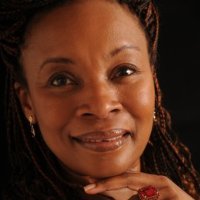
A Rockefeller Associate of the African Gender Institute at the University of Cape Town, Catherine has worked as a consultant in higher education and the arts to various international organizations headquartered in Nairobi. Catherine is passionate about education as a driver of social change. Having worked in both the private sector and the non-profit sector, she has come to believe that a robust educational grounding can prepare any individual to meet the challenges of the fast-paced, constantly changing networked world in which we live today. To register click here. |
Assoc. Prof. Laura Czerniewicz - Open Educational Resources (OERs), it’s not business as usual
|
Associate Professor Czerniewicz has a long history engaging with open scholarship, open access and open 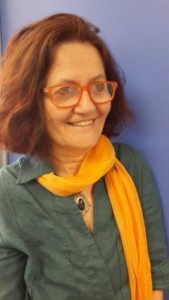
Laura is involved with policy work in various contexts, and is a regularly invited keynote and panellist presenter in South Africa and internationally as well as serving on the advisory boards of a variety of international educational and technology publications. To register click here. |
Establishing Research Data Management Services in Academic Libraries
|
Dr Elisha Chiware is the Director of Cape Peninsula University of Technology Libraries (CPUT) and Secretary of 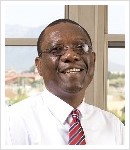
He developed international partnership with German universities to develop open source platforms, workflows and systems for data management in academic libraries. Chiware has published over 20 articles, two books and presented several papers at international conferences. His recently published article: “Academic libraries’ roles in Research Data Management Services: a South African perspective” reports on the development and integration of open source platforms, RDM tools and services into institutional research workflows to enhance research production, accessibility and reuse of data. At the IFLA World Library and Information Congress 2015, Chiware and Mathe presented a paper on RDM services, policies and guidelines, and relevant skills. Zanele Mathe is a Senior Librarian for the Faculty of Applied Sciences and Research Support at Cape P 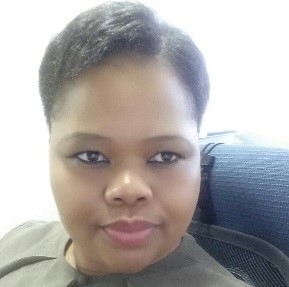
Her research interests include Research Data Management Services, Research Data Management tools, eResearch infrastructure, Scholarly Communication Services and Data Sharing. She co-authored, among other papers, “Academic libraries’ role in Research Data Management Services: a South African perspective; developing research data management services”. She is proactive in the development of research data management services. To register click here. |
Figshare - Making Data Sharing Easy and Quick
|
Dr Mark Hahnel is the founder of Figshare, a research data dissemination platform. He is passionate about open 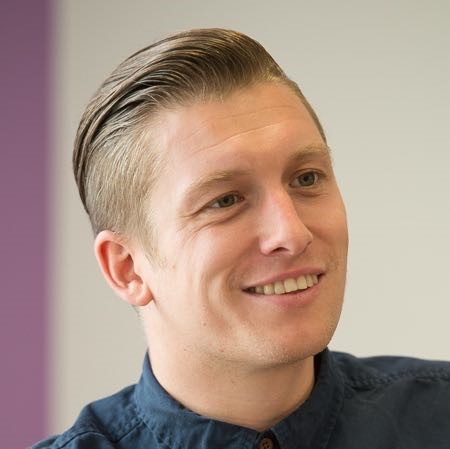
Mark shared his own personal frustrations of being unable to publish the video files from his PhD research in an academically reputable way. Figshare solves this problem by providing a place where researchers can easily and quickly upload a huge variety of different digital research outputs, whether they’re videos, animations, audio files, images, data set, slides or figures. Mark is a passionate advocate of data sharing - the necessity to develop, implement, mandate, and follow best and safe data management practices. Having been a researcher himself, Dr Hahnel also knows the common misconceptions about data sharing and helps clarify them. To register click here. |
The Honourable Albie Sachs - "It was very liberating for me in a personal way, to turn around the notion of vengeance as being something that’s destructive and making it much more constructive"
|
Albie Sachs is a retired Justice of the South African Constitutional Court. His career in human rights activism 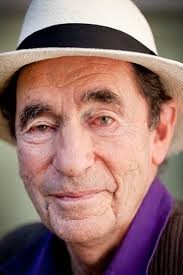
In 1988, while he working as a law professor in Mozambique, a bomb placed in Justice Sachs’ car by South African security agents resulted in the loss of his right arm and the sight in one eye. After recovering from the bomb blast, Justice Sachs devoted himself to preparations for a new democratic constitution for South Africa. Following the first democratic elections in 1994, President Nelson Mandela appointed Justice Sachs to the newly established Constitutional Court, where he served for 15 years. Since his retirement from the Court in 2009, Justice Sachs has been a frequent visiting professor at universities and law schools throughout the United States and has served as an advisor on matters of constitutional law. A prolific author, Justice Sachs has won two Alan Paton Awards, for Soft Vengeance of a Freedom Fighter (1991) and The Strange Alchemy of Life and Law (2009). To register click here. |
Johan Fagan - An author who is committed to making medical content freely available
|
Johan Fagan is the Leon Goldman Professor and Chairman of the Division of 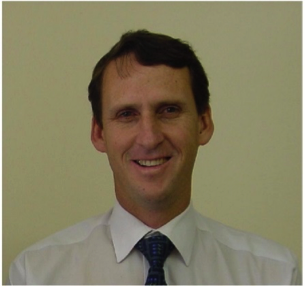
Professor Johan Fagan will speak on his journey from an author publishing with Elsevier to an author who is committed to making some of his essential medical content freely available to the widest possible audience. To register click here. |
Daniel Hook - passionate about open science, collaboration and bringing tools to researchers that help them do more!
|
Daniel Hook is the Managing Director of Digital Science, a technology company serving the needs of scientific 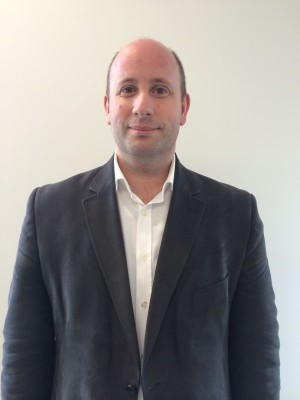
Daniel obtained his PhD in Theoretical Physics from Imperial College in London in 2007 and is still an active researcher in his spare time. He holds a visiting position in the Centre for Complexity Science at Imperial College London and a visiting professorship in Theoretical Physics at Washington University in St Louis. To register click here. |
“…we need new indicators [of measuring scholarship] to break out of the status quo” – Herbert Van de Sompel
|
Herbert Van de Sompel is a Belgian librarian and computer scientist, most known for his role in the development 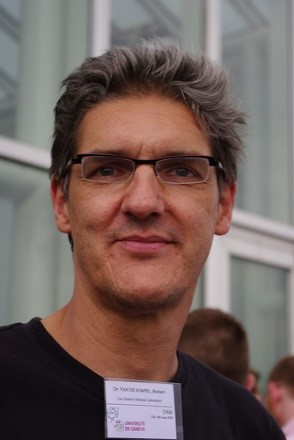
Currently, he is the team leader of the Prototyping Team at the Research Library of the Los Alamos National Laboratory. The Team does research regarding various aspects of scholarly communication in the digital age, including information infrastructure, interoperability, digital preservation and indicators for the assessment of the quality of units of scholarly communication. Van de Sompel is also excited about research his team does in trying to find alternative indicators for the assessment of the quality of scholarly works. He believes that this area of study has the potential for profound impact on the economic and sociologic aspects of the scholarly communication system, since the use of the ISI impact factor has Another project that Herbert Van de Sompel is working on is the next generation repositories project with the NRF being a partner in the project To register click here. |
"... The real value of learning is sharing what you've learned" - John Willinsky
|
John Willinsky is Khosla Family Professor of Education, Stanford University and Professor (Part-Time) 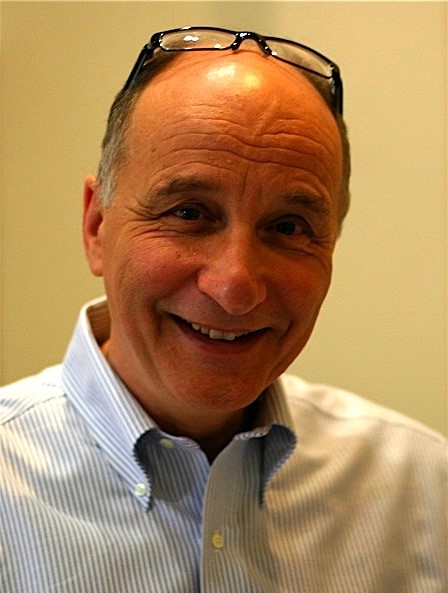
While at Stanford University, he retains a partial appointment at SFU where he directs the Public Knowledge Project, which is researching systems that hold promise for improving the scholarly and public quality of academic research. Willinsky founded the Public Knowledge Project and developed Open Journal Software (OJS), a free, open source platform that allowed journals to more easily and affordable publish online. In October 2009 he was awarded an honorary Doctor of Laws degree from SFU for his contribution to scholarly communication. Willinksy often frames his commitment to Open Access as an issue of social justice. Rather than just being critical of journal pricing, Willinsky says he wanted to respond to a problem that he had observed with a tangible solution to help fix it. For Willinsky, Open Access was a way to positively impact one area of inequity in education – concerning access to knowledge. His contribution to open access is driven by his passion to change the balance of power in publishing as of access to knowledge as a basic human right. Willinsky says “I have also come to believe over the years that the real value of learning is found in sharing what you’ve learned.” PKP has gone on to develop a portfolio of other open source tools as well, including Open Monograph Press, Open Conference Systems and Open Harvester Systems. To register click here. |
"Open Access (OA) is a no-brainer! - that is the opinion of Professor Bernard Rentier
|
Prof Rentier was the Rector of the University of Liège from 2005 to 2014. He is a virologist and immunologist by 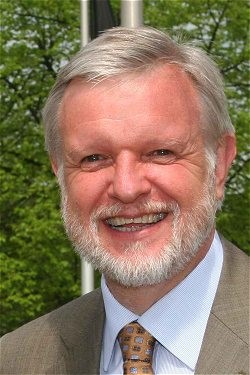
Prof. Bernard Rentier is described by OA guru Stevan Harnad as is the first rector to fully grasp and fully act upon OA. The OA mandate instituted at Liège (Immediate Deposit/Optional Access, linked to performance evaluation) is considered to be an excellent exemplar not just for Europe but worldwide. Bernard Rentier was conferred a honoris doctorate degree by Université du Québec à Montréal (UQÀM) in 2014 in recognition of his contribution to Open Access. Professor Bernard Rentier is considered to be a world leader in open access and will be sharing his knowledge and excellent practises at the OA Symposium. To register click here. |
